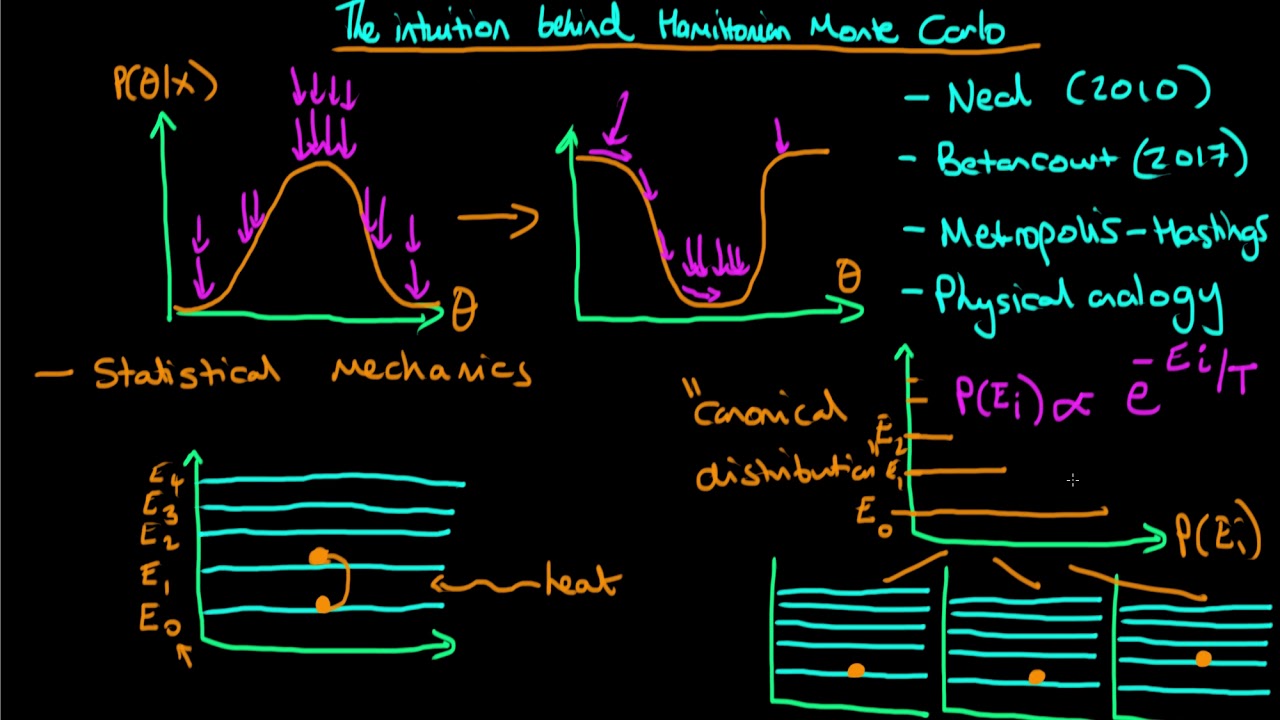Hamiltonian Monte Carlo (HMC) is an algorithm used in Bayesian statistical modeling. It is a Markov Chain Monte Carlo (MCMC) algorithm that utilizes the Hamiltonian mechanics to efficiently explore potentially curved regions of the posterior probability distribution of a set of parameters. The algorithm repeatedly samples parameters from a hypothetical Hamiltonian system with a certain energy level, and then adjusts the energy level in each iteration. This allows the algorithm to dynamically explore larger regions of the posterior distribution than conventional MCMC algorithms, which remain within predefined regions of the space.
HMC provides a robust approach to sampling potential posterior distributions, and is used in many statistical applications, such as Bayesian regression, and in machine learning algorithms. HMC has been found to perform better than traditional MCMC algorithms by utilizing information about the posterior probability distributions. In addition, the algorithm does not require a large amount of tuning or knowledge of the underlying distribution.
HMC was developed by Neal Radford and Geoffrey Hinton in the 1990s. Radford was inspired by the recent development of Hamiltonian physics, and developed the algorithm as a way of understanding the behavior of physical systems. Additionally, the algorithm was used by Hinton and Radford to explore the structure of neural networks.





